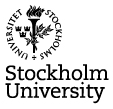
Improving real productivity
Seminar with Prof. Charles Hall, 8 November 2012
In fact, labour productivity is usually derived by using more energy per worker hour. For example, in agriculture we have given each farmer much larger muscles in the form of tractors, agro chemicals and so forth.
Because the productivity has been increased, this has allowed a massive increase in the amount that we could pay labour. This approach worked enormously well during the early to mid part of the last century, however, it requires a continual expansion of overall production for it to be effective over time.
If we have reached the point where it is no longer possible to use more and more material resources due to depletion, then we can have a problem because by making labour more productive we are in effect making energy less productive. If energy is approaching maximum quantities that can be generated, then something has to give. One solution, not too popular, is to make labor less productive and pay less.
About Charles Hall
Charles Hall is a Systems Ecologist who received his PhD under Howard T. Odum at the University of North Carolina at Chapel Hill. He is the author of seven books and more than 250 scholarly articles. He is best known for his development of the concept of EROI, or Energy Return On Investment, an examination of how organisms, including humans, invest energy into obtaining additional energy to improve biotic or social fitness.
Feel free to post or circulate the announcement. The seminar is open to all interested and free of charge. No registration needed.
The seminar is organised in collaboration with Global Utmaning.
Time and place
— From labour productivity to a multidimensional measure of productivity
13:00-14:00, 8 November 2012
Beijer Hall, the Royal Swedish Academy of Sciences, Lilla Frescativägen 4, Stockholm
Vacancies | Contact | Environmental policy | Cookies
Stockholm Resilience Centre
Stockholm University, Kräftriket 2B | Phone: +46 8 674 70 70 | info@stockholmresilience.su.se
Organisation number: 202100-3062 | VAT No: SE202100306201



